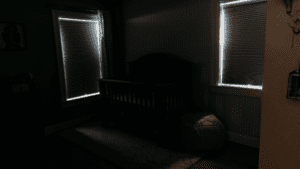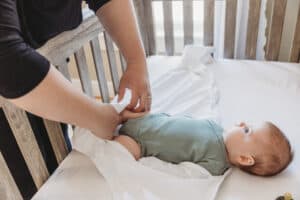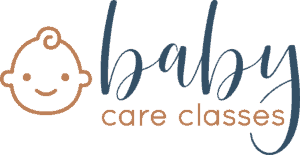Newborn Sleep 101
The expression “sleeping like a baby” brings to mind a long, quiet snooze. It’s a bit of a running joke in our industry! New parents are often warned that their little bundle of joy will arrive with a big serving of sleep deprivation. So what can parents truly expect when it comes to newborn sleep?
Let’s dig into the science of sleep in the first three months of life.
Newborn Sleep Patterns:
Most newborns sleep between 14-17 hours per day, sometimes even more!
So maybe that’s where the saying comes into play. The issue for parents is that they don’t sleep in any distinguishable pattern those first few weeks!
At birth, babies haven’t yet developed a circadian rhythm and often confuse night and day. This is why the newborn phase is a recipe for tired parents, and why we’re so adamant about newborn sleep schedules to help establish their rhythms early on!
Newborn Wake Windows:
For the first three months, babies will only stay awake for 60-90 minutes at a time. The first few weeks they may stay awake for as little as 20 minutes at a time.
Babies get OVERTIRED very easily if they are kept up past their natural wake window. And once they are overtired they are harder to get down and have a reduced quality of sleep. Preventing overtiredness is crucial for a well-rested household.
Newborn Awake Phases:
- Quiet Alert- Observational. Babies are quietly soaking in their environment. Give them space to explore passively with their little baby senses
- Active alert- Movement! Babies are moving their arms and legs, they make noises and may be interested in engaging with their environment.
- Drowsy- Signs of Tiredness! Eyes gloss over, refusing eye contact, yawning.
- Crying- overtired. Oops. Babies will cry to communicate.
- Wide-Eyed Alert- Really overtired. If your baby overshoots their wake window their body will release cortisol to keep them awake. It’s like a shot of espresso and they may look panicked and unsettled.
What does normal newborn sleep look like?
Well, we’ve established sleep patterns and awake times, but what about the actual sleep itself?
Many parents are surprised to learn that their newborns are quite active sleepers. During sleep, they may grunt loudly, move their body, or even open their eyes briefly before gently closing them again.
It’s important for parents to know this so they don’t wake their baby up when they’re actually just sleeping loudly! If you wake up your baby, they’ll get used to waking more often which can lead to a not fun cycle of sleep deprivation.
How can I help my newborn sleep?
Newborn Sleep Safety:

First, by keeping them safe. It will help your quality of sleep by not worrying about their sleep safety.
Always follow safe sleep guidelines. Keep in mind the ABC’s of safe sleep.
- Babies should sleep ALONE [no other people, toys, bumpers or objects in the sleep space]
- on their BACK
- and in a CRIB [or bassinet]
If you choose to bed-share, please make sure that you are doing it as safely as possible by using the safe sleep seven.
Newborn Sleep Environment.

Babies that are in an ideal environment will cue into sleep easier and sleep longer stretches!
- Room temperature around 68-72 degrees and baby dressed appropriately
- Dark room
- Sound machine
SWADDLING

We are very pro swaddling at baby care classes. Babies feel secure and sleep much more soundly when they are wrapped up snug and tight.
LEARN

The more you learn about newborn sleep, the better chance you have of gently and effectively teaching them to sleep better, longer, faster! Our video series is focused on understanding your baby and having the most well rested family possible.

We are Kristin and Karina, founders of Baby Care Classes. As sleep Consultants, Newborn Care Specialists and overall baby gurus, we wanted to share our experience and knowledge with you to help you be successful in your parenting journey.
Kristin + Karina
FOUNDERS, BABY CARE CLASSES

Having a baby? Prepare with our comprehensive online baby care class!

Explore the Blog

